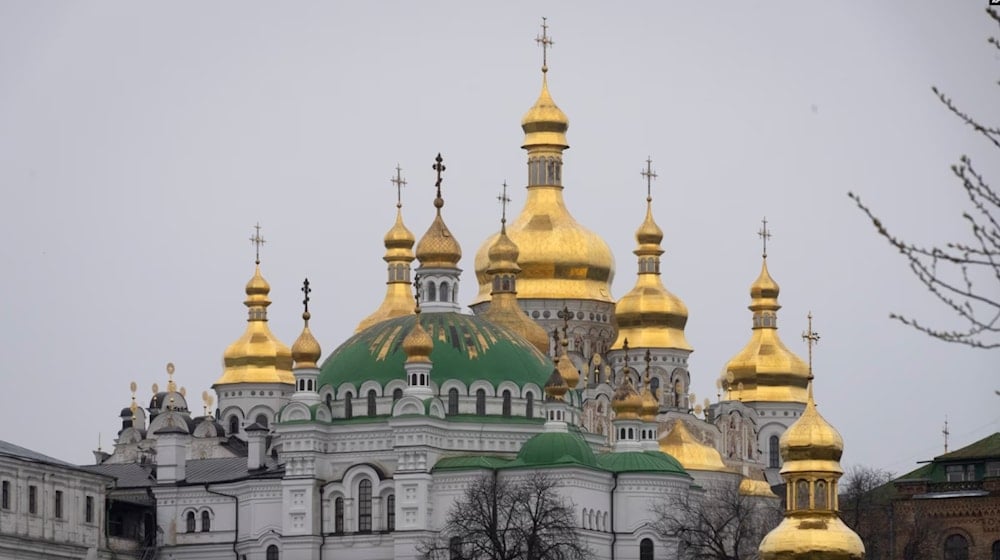Russia backs UN report on Kiev actions against Ukraine Orthodox Church
Russian Ambassador-at-Large Gennady Askaldovich stated that Moscow will continue urging international organizations to pressure Kiev into reversing laws targeting canonical Orthodoxy.
-

The Monastery of the Caves, also known as Kyiv-Pechersk Lavra, one of the holiest sites of Eastern Orthodox Christians, is seen on March 23, 2023, in Kiev, Ukraine. (AP)
Russia has expressed approval of a recent report by the Office of the United Nations High Commissioner for Human Rights (OHCHR) that critiques Ukraine's treatment of the Ukrainian Orthodox Church (UOC).
Russian Ambassador-at-Large Gennady Askaldovich stated that Moscow will continue urging international organizations to pressure Kiev into reversing laws targeting canonical Orthodoxy.
OHCHR Report Sparks Diplomatic Clash
The OHCHR report, released in late December, concluded that Ukraine had not provided sufficient justification for its measures aimed at disbanding religious organizations, including the UOC. The findings raise concerns about the proportionality and necessity of Kiev's actions.
"Taking into account the countless facts of the ongoing persecution of Christians who support the canonical Orthodox Church in Ukraine, as well as the criticism of the Ukrainian authorities that has been heard for many years from numerous religious, public and political circles, one can only welcome the long-awaited conclusions of OHCHR," Askaldovich stated in a release from Russia's Foreign Ministry.
Diplomatic commitment
The ambassador reiterated that Russia will persist in calling on the OHCHR and similar bodies to take firm stances against Kiev's "state arbitrariness" towards canonical Orthodoxy. He also urged the repeal of "repressive laws."
Ukraine's Foreign Ministry has dismissed the UN findings, calling the report inaccurate and accusing Russia of misrepresentation. According to Askaldovich, Kiev's swift denial and efforts to "whitewash" the report's conclusions are evidence of its discomfort with the criticism.
Read more: Raid on Ukrainian Orthodox Church leaves Metropolitan injured
The controversy stems from legislation enacted in September, which gave Ukrainian authorities the ability to ban the UOC over its historical ties to the Moscow Patriarchate. Kiev has framed these efforts as a necessary step to counter "Russian influence", while Moscow continues to condemn the measures as religious persecution.

 2 Min Read
2 Min Read









